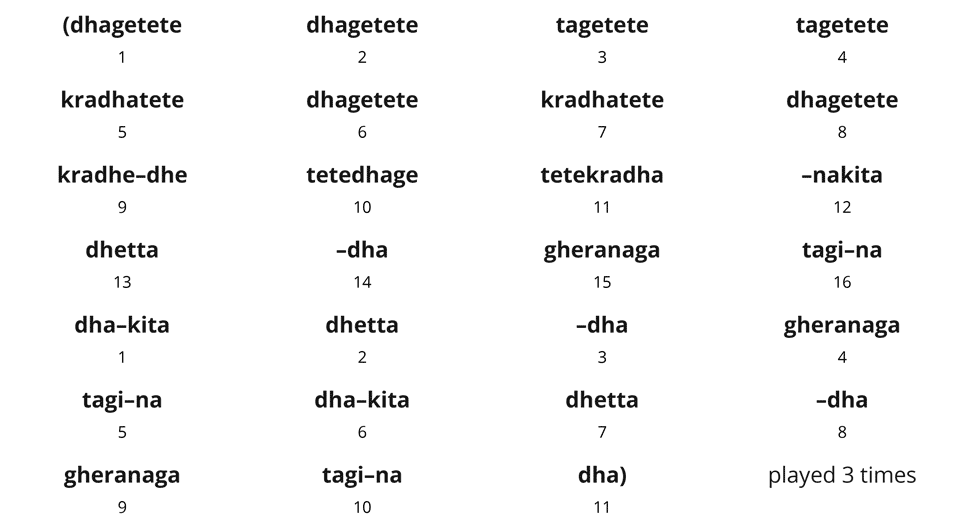Paran – परन
Quick Definition: A tukra- or chakradar-type composition coming from the pakhawaj tradition or style.
Literal Meaning: The meaning of paran in tabla and pakhawaj is unclear. Possible origins include “wing” and “a very quick time in music”.
Paran Example

(from Benares Paran 3)
Introduction to Paran
The paran is a tukra- or chakradar-type composition which comes from the pakhawaj tradition. Parans are learned by most tabla students, but they are not as commonly played in performance as other forms. Many players do not perform them at all.
Parans are especially common in the Benares gharana. In some lineages, parans or a paran-influenced style may be strong, such as in the style of Kishan Maharaj. In other lineages, such as that of Anokhelal and Chhotelal Misra, parans are not as strongly emphasized.
Most parans use a limited number of khula-baj (“open-style”) bols (phrases) which are also played on pakhawaj, such as:
- dhagetete
- tagetete
- kradhatete
- kradhetete
- kradha-na
- dhet-ta-
- gheranaga
- tagin-na
The example paran above uses most of these.
However, many of these bols are also common to tukras. The difference in performance is that parans, especially in Benares, are played in a way that imitates the pakhawaj. This includes strong, loud strokes on the drums. And the baya (bass drum) is played with a more open, less inflected, technique than in more typical tabla compositions such as the kayda.
Below is another Benares paran. Notice how steady and strong the strokes are:
(from Benares Paran 2)
Kinds of Paran
There are many different kinds of paran, depending on the tradition. Many parans have a long, chakradar form, meaning they have a tukra form which is played three times. But there are also some shorter parans.
Chhotelal Misra mentions the following paran types in his book “Tal Prabandh” (p. 43):
- Sath-Paran ( साथ-परन)
- Gat-Paran (गत-परन)
- Tal-Paran (ताल-परन)
- Bol-Paran (बोल-परन)
References
Misra, Chhote Lal. Playing Techniques of Tabla – Banaras Gharana. New Delhi: Kanishka Publishers, 2007.
—. Tal Prabandh. New Delhi: Kanishka Publishers, 2006. (Hindi)